Being frustrated from work and missing a challenge with an not too far away goal, I finally decided to tackle an idea I'm hatching since decades, namely to just go and build my own computer. I grew up with Atari ST and Commodore Amiga and such the 68K was my first choice. But then I thought, well, maybe I'll start a little more humble, with an 6809 system. Should be easy and cheap, a few chips, some ROM and RAM - and here you are. I am no professional in the matter, not at all, but a computer enthusiast since first contact with the Commodore PET series (the bigger ones) at school. Of course I professionally got into the PC world right away, but meanwhile, well, PCs... I can solder, and I played around a lot with Arduinos and such in the last years, so I felt fit enough to give it a go.
Sooo... I sticked myself to an internet terminal for a total of some 30 or more hours of research for details, example projects, data sheets, schematics, literature, hardware components, software possibilities and so on and so forth. After a few weeks with almost daily packets via ebay (unbelieveable, those Chinese), I had a generous stock of chips for experimenting with different designs.
Finding the appropriate design, the one which I thought would be the best for my idea, was, well, a real adventure. The point is the operating system. Hacking up a basic 6809 is indeed no big deal at all, after I had scribbled the first design of a very basic BASIC computer, I realised that it was already rather common, I read a lot of pages referencing to Grant Searle's design. But that's not exactly what I had imagined, I wanted to go a little bit bigger, to be able to run a real operating system on it. My idea is not to just get A computer running, but to stay as close as possible to the initial motorola family concept, to build the computer that Motorola DIDN'T build.
Now, 6809 and operating systems, that is a thing. Certainly not for the contemporary witness, but I remind you, those were pre-internet times... a good deal of digital archeology is essential... :-)
Finally I decided to go for the 6883/6847 - option for system design, as the result would be a machine quite close to a Dragon or a TRS CoCo - and such I think I'm having a good chance of getting an OS-9 ported and running on it. To be precise and honest, it's the slightly modified exemplary design from the data sheet of the 6883.
If this project is running well, I might tackle an even "purer" system, employing multiple 6829 and 6844 and try to get some UNIXoid OS running. (Pure megalomania :-) an 68k is SO much easier)
 kleinesee
kleinesee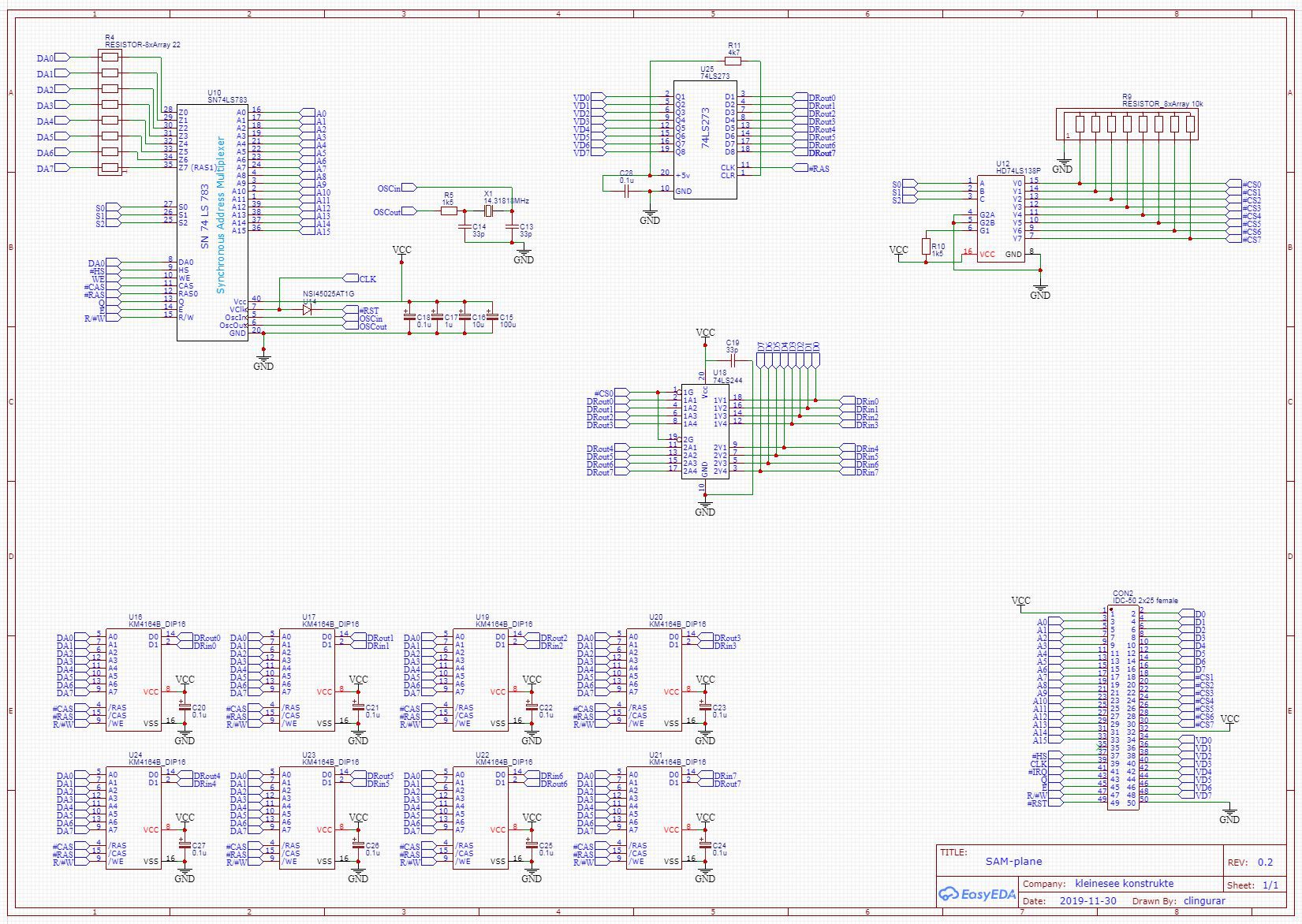

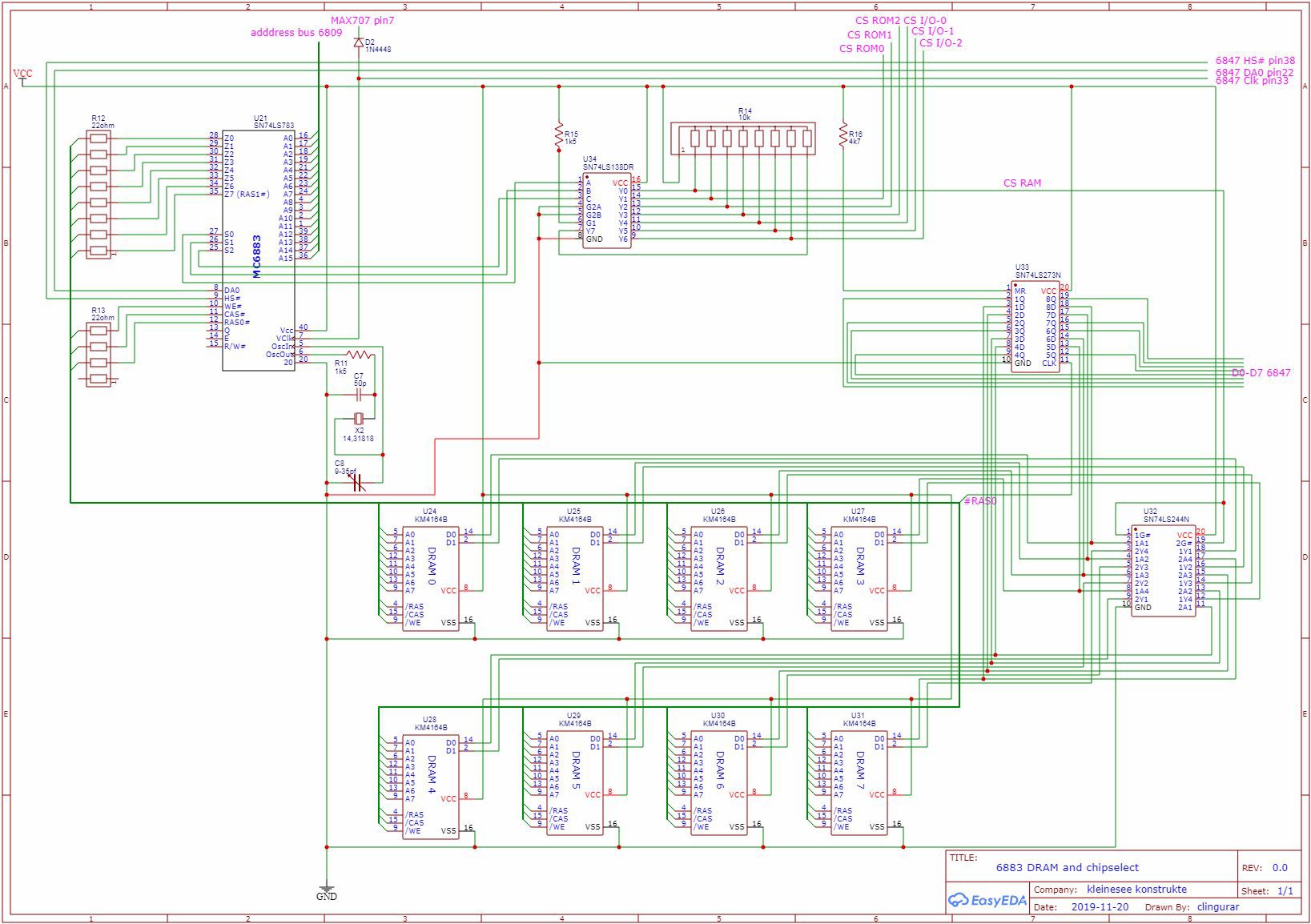
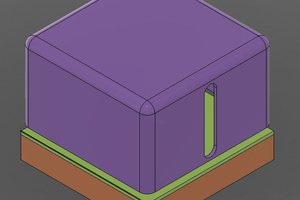
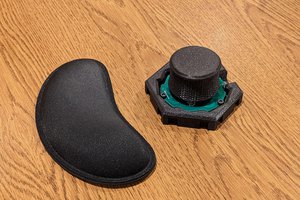
 colton.baldridge
colton.baldridge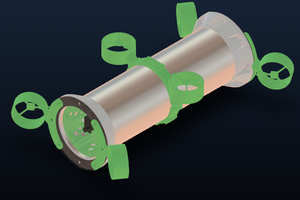
 Abomination named Alex
Abomination named Alex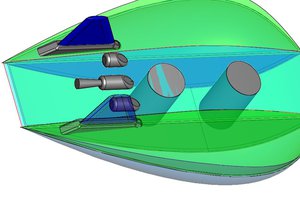
 starlord
starlord
Sounds like you're decided about your operating system. However, if you ever revisit your decision I suggest you look at Cubix by Dave Dunsfield. It's written for the 6809 and, in my opinion, is a full featured OS, taking into account when it was created. In addition there's an emulator so you can try it without having a 6809 system. I run the emulator in DosBox on a Windows 10 system. I don't know that it's open source but it's, as of the date of this comment, freely downloadable from Dave's web site.